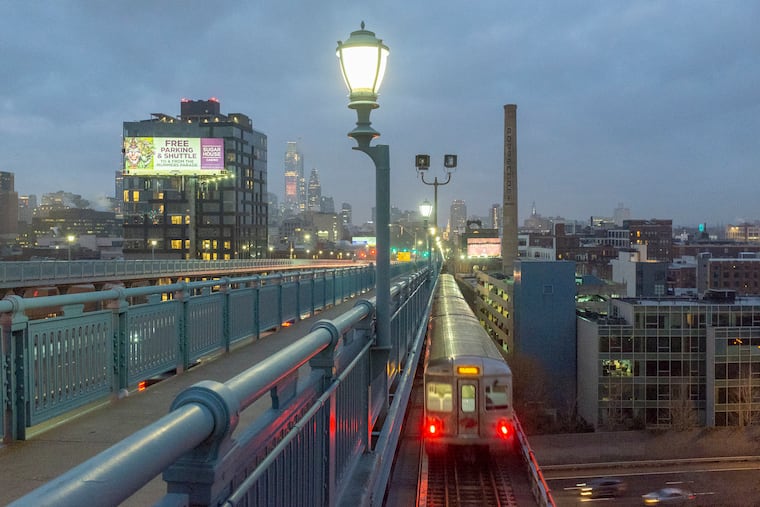Seven months after backlash, PATCO will introduce changes to overnight schedule Saturday
PATCO will keep all stations open during the new Owl Service schedule.

Resistance to overnight schedule changes aimed at improving safety sent PATCO officials back to the drawing board in May. Now the commuter rail line is ready to try again, beginning Saturday.
The revised “Owl Service” — from midnight to 4 a.m. on weekdays, and 2 to 5 a.m. on weekends — implements changes recommended by a 10-person task force. It puts a Delaware River Port Authority police officer aboard, as previously proposed; runs every hour instead of 45 minutes; and keeps all stations open. (The 9-10th and Locust station already had overnight closures.)
The first and last doors of the four-car trains will remain closed, to encourage riders to sit closer together, according to PATCO. A safety awareness campaign also is being launched as part of the effort, and travelers can report issues through “Look Up. Speak Up,” a safety app.
John Hanson, CEO of the DRPA said two assaults this year showed possible vulnerabilities in PATCO safety measures — and he wanted to prevent others from happening. So, in the spring, just as PATCO would do with any other schedule change, the commuter railroad revamped overnight service to reduce frequency as well as close about half of the High-Speed Line’s stations during that time.
Criticism erupted on social media. About 130 calls and comments came in to PATCO, Hanson said, as well as input from officials in Collingswood, Haddon Township, and Haddonfield, where stations were proposed to close, and residents would have had to find other ways to get around late at night.
Comments ranged from “this is a pretty terrible solution” to “this is a service cut," while also criticizing the short notice. Some raised concerns of the possibility of diminishing property values in towns with less service, while others advocated on behalf of health-care workers and late-night drinkers.
Hanson hadn’t anticipated the pushback.
“We only heard from a handful of actual users in all that feedback, so, I was surprised by the passion, I was surprised by the reasons for it, I was surprised by the groups who did it, and I realized that the way that I rolled it out was a mistake,” Hanson said. “But it was not a mistake that harmed anybody, because we didn’t actually do it, and we pulled it back.”
The task force, led by DRPA Police Capt. George Bollendorf, analyzed about two years of data relating to late-night service. Patrols were “beefed up” in the interim, Hanson said.
The incidents that helped shape the schedule change were a sexual assault aboard a moving train in January and an assault on an employee in March. Bollendorf didn’t see other incidents that provoked changes to the service, estimated to carry around 200 riders nightly in the overnight hours.
In February, a Voorhees man was charged in the sexual assault of a 22-year-old woman on a train traveling in Camden County around 4 a.m.
“Those incidents exposed a potential weakness that was not currently being exploited, but you know, look, I became very concerned … that people would be injured, people would be hurt — both our employees and our riders, and we absolutely take everybody’s safety very seriously,” Hanson said.
PATCO general manager John Rink said the latest adjustments are going over a bit better.
“My office hasn’t received any complaints that I’m aware of,” he said.
The new schedule, which goes into effect at 12:01 a.m. Saturday, can be found on PATCO’s website.